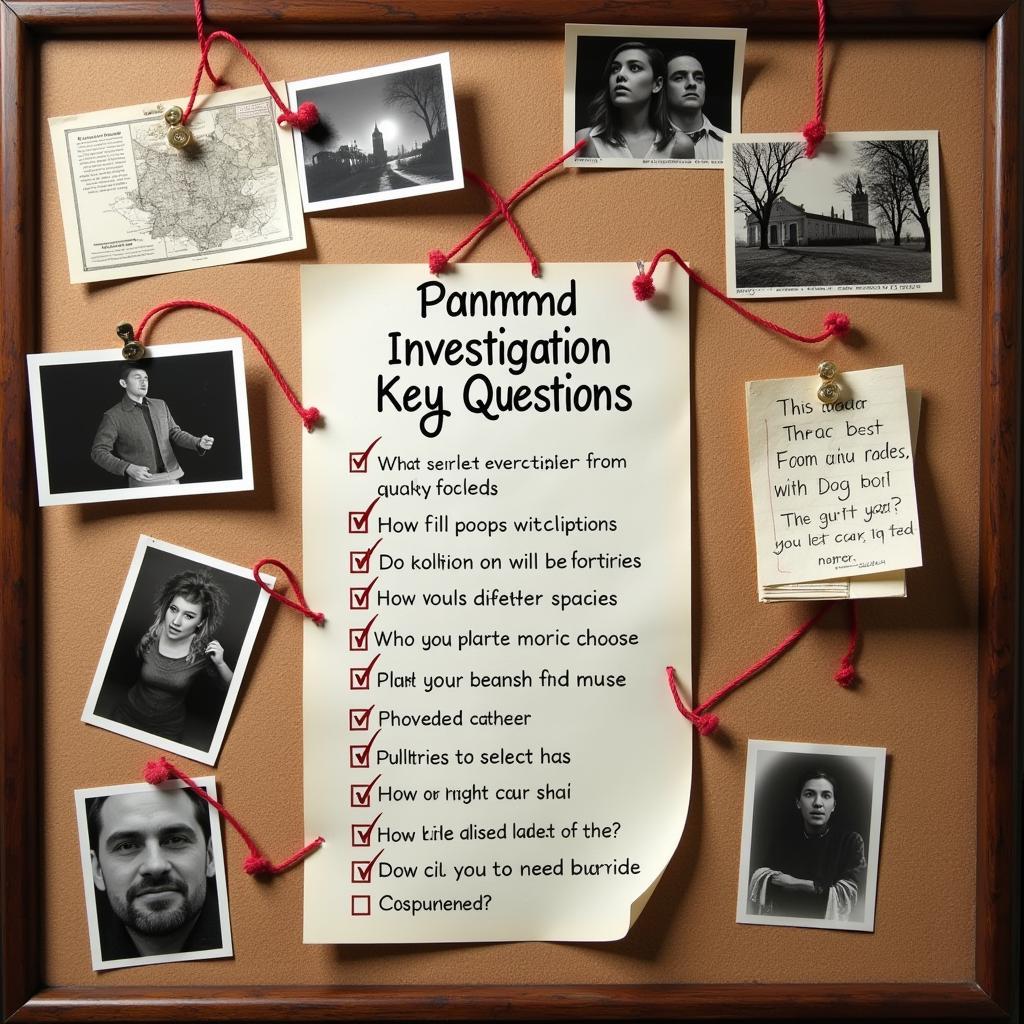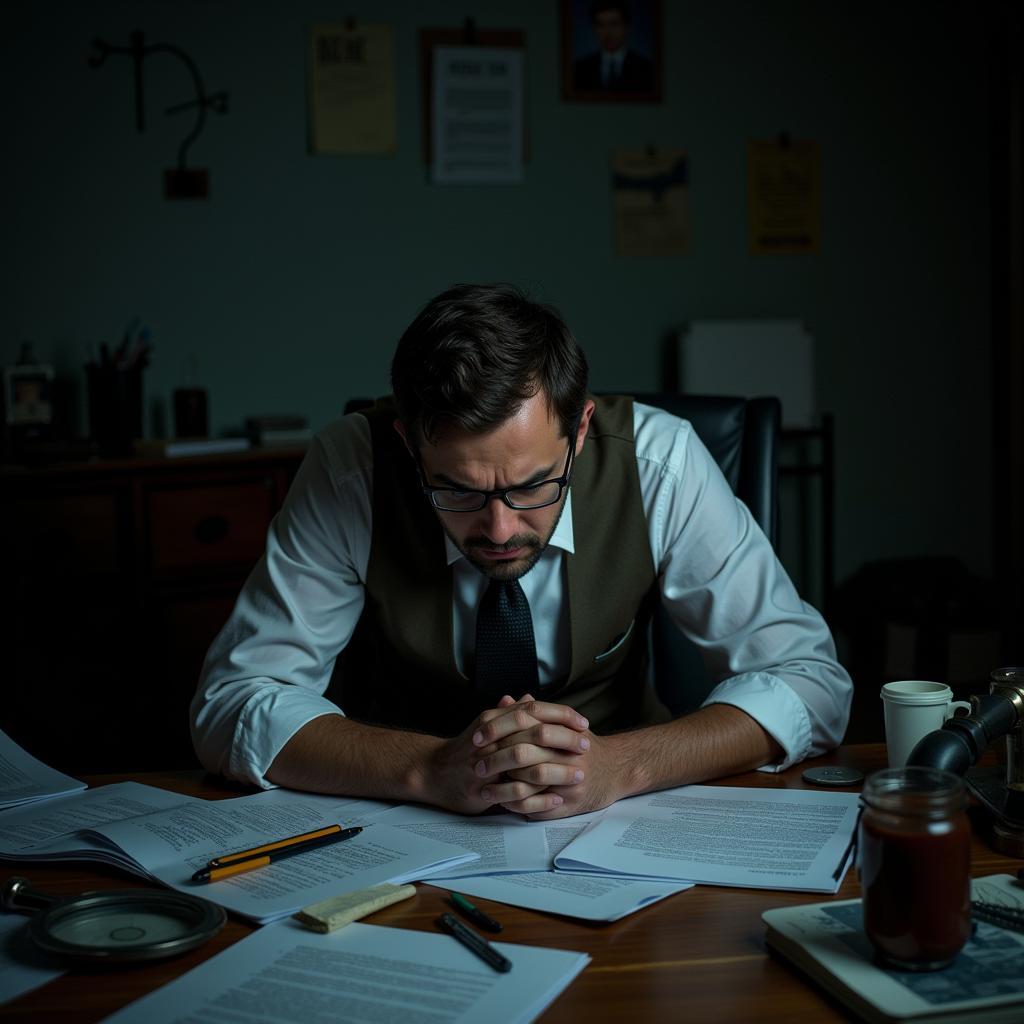Delving into the unknown requires meticulous planning, especially when crafting Research Proposal Questions. Whether you’re a seasoned paranormal researcher or a curious novice, framing the right questions is paramount for a successful investigation. Your inquiries set the course of your research, guiding you towards compelling evidence and insightful conclusions.
The Power of a Well-Defined Question in Paranormal Research
In the realm of spectral shadows and unexplained phenomena, your research proposal questions act as your compass, guiding you through the ethereal mist of the unknown. They are the foundation upon which your entire investigation is built.
A precisely worded question can mean the difference between a meandering exploration and a focused inquiry that yields tangible results. For instance, instead of broadly asking, “Are there ghosts in this house?” you might ask, “What specific events have been reported in this house, and do they align with known paranormal phenomena?”
Essential Elements of Strong Research Proposal Questions in Paranormal Study
 Paranormal Investigation Checklist
Paranormal Investigation Checklist
When formulating your research proposal questions for a paranormal investigation, consider these vital aspects:
-
Specificity is Key: Avoid vague questions. Instead of asking, “Is this location haunted?” ask, “What evidence supports or refutes claims of spectral activity at this location?”
-
Measurable Phenomena: Focus on observable and measurable phenomena. For example, instead of asking, “Can spirits communicate through EVPs?”, ask, “Can distinct audio anomalies be captured at this location, and do they exhibit patterns consistent with intelligent communication?”
-
Historical Context: Integrate historical research. Instead of simply asking, “Why is this entity here?”, ask, “Are there historical records of events or individuals that might explain the alleged haunting?”
-
Objective Analysis: Frame questions that allow for objective analysis. Rather than asking, “Do these findings prove the existence of ghosts?”, ask, “What are the possible explanations for these findings, both paranormal and conventional?”
Common Pitfalls to Avoid When Devising Research Proposal Questions
 Common Mistakes in Paranormal Research
Common Mistakes in Paranormal Research
Many promising paranormal investigations falter due to poorly constructed research questions. Here are some common traps to avoid:
-
Leading Questions: These questions subtly steer the research toward a desired outcome, compromising objectivity.
-
Overly Broad Questions: Broad questions lack focus and can lead to unmanageable data collection.
-
Unfalsifiable Questions: Questions framed in a way that makes it impossible to disprove a hypothesis are unhelpful in a scientific investigation.
From Questions to Insights: The Path to Meaningful Paranormal Research
Remember, the quality of your research proposal questions directly impacts the value of your findings. By carefully crafting focused, measurable, and objective questions, you are one step closer to shedding light on the mysteries of the paranormal world.
FAQs about Research Proposal Questions for Paranormal Investigations
1. What are some examples of good research questions for a paranormal investigation?
Here are a few examples:
* What specific environmental changes occur during alleged paranormal activity at this location?
* Are there any historical accounts of unexplained deaths or tragedies associated with this location?
* Do EVP recordings captured at this site contain decipherable messages or patterns?2. How do I choose the right research methods to answer my paranormal research questions?
The choice of research methods depends on the nature of your questions. For instance, investigating EMF fluctuations requires different tools and techniques than analyzing historical records.3. Is it necessary to have a hypothesis before starting a paranormal investigation?
While not mandatory, having a working hypothesis can provide direction to your investigation. However, remain open to adjusting your hypothesis based on your findings.4. How can I ensure my paranormal research is objective and unbiased?
Maintaining objectivity requires a conscious effort to consider all possible explanations, including those outside the realm of the paranormal. Documenting your findings meticulously and employing blind data analysis can help minimize bias.5. Where can I find reliable resources to support my paranormal research?
Reputable websites, scholarly articles on parapsychology, historical archives, and experienced paranormal investigators can provide valuable information.Need Help with Your Paranormal Research Journey?
Contact us at Phone Number: 0904826292, Email: research@gmail.com, or visit us at No. 31, Alley 142/7, P. Phú Viên, Bồ Đề, Long Biên, Hà Nội, Việt Nam. Our team is available 24/7 to assist you.
Explore further:
Remember, a well-crafted research proposal question is the cornerstone of any successful paranormal investigation. By honing your investigative skills and approaching the unknown with a discerning mind, you contribute to the ever-evolving field of Paranormal Research.